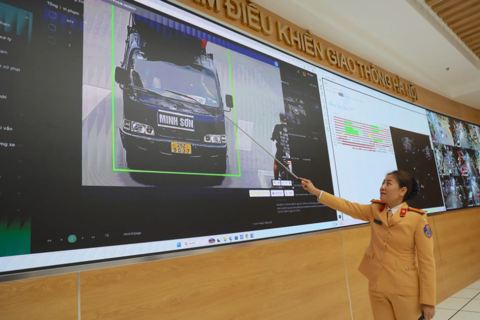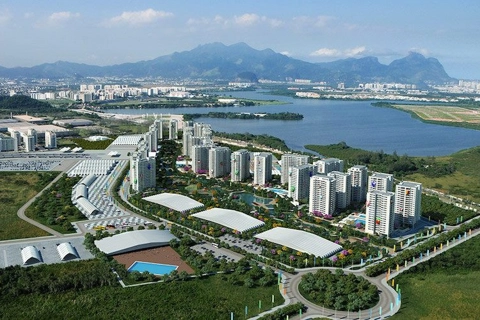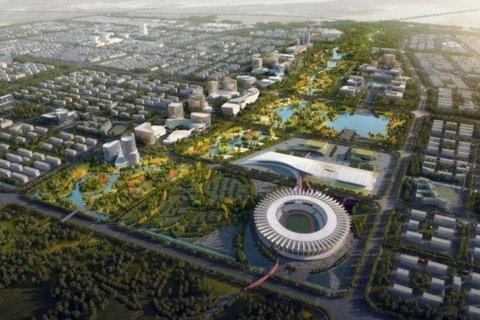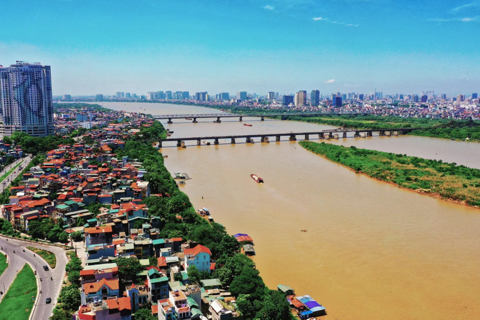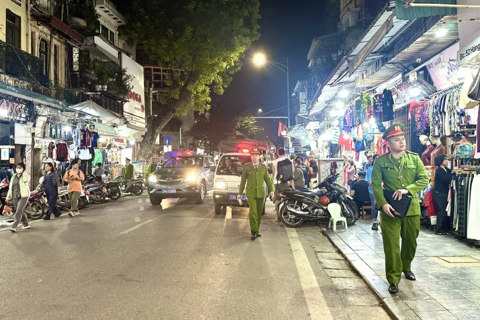Hanoi
FDI contributes comprehensively to Hanoi socio-economic development: Mayor
Oct 05, 2018 / 06:11 AM
For Hanoi, the important thing is not only how much FDI is attracted, but also how to promote the effectiveness of this capital flow.
The foreign direct investment (FDI) sector with the advantages in capital and technology have had an especially important contribution to the socio-economic development of Hanoi in particular and Vietnam overall, stated Nguyen Duc Chung, chairman of the Hanoi People's Committee.
As of June 2018, Hanoi had 4,300 active projects with total registered capital of over US$33.38 billion, stated Chung at a conference on October 4.
In particular, in 2016, 2017 and the first six months of 2018, US$12.46 billion was attracted, equivalent to 59% of the total FDI attracted in the 1989 - 2015 period. With the total FDI capital of around US$5.9 billion in the first six months of 2018, Hanoi has claimed the first place in FDI attraction nationwide.
Chung attributed the success to the fact that Hanoi has always been the pioneer in activities to build a government of service which supports businesses in every step. "The satisfaction of enterprises and citizens has been identified as the gauge in the operation of Hanoi's government system," he said.
According to Chung, FDI is an important source of capital for social investment, accounting for 10 - 15% on average of social investment and contributing to the city's high GRDP growth over the past years (averaging 7.11% annually).
At the same time, it is the FDI sector that has created stronger competition pressure in each sector, motivating domestic enterprises to innovate technology as well as enhance the economy's competitiveness.
The FDI sector has also created more stable jobs and skills training for workers; and there is a strong impact on the development and transfer of the structure of the three main sectors (industry - construction, trade - services and agriculture) promoting administrative reform and improving the business environment, building capacity of state management officials in the area of investment and enterprises.
Additionally, the FDI sector has contributed to the development of the metropolitan Hanoi to be a civilized and modern city with commercial and service facilities up to international standards, such as 72-storey Keangnam apartment, commercial, and service complex; 65-storey Lotte complex, international five star hotels like Sofitel Metropole, Hilton or Sheraton.
For Hanoi, the important thing is not only how much FDI is attracted, but also how to promote the effectiveness of this capital flow. Firstly, Hanoi will continue to establish a favorable investment and business environment so that enterprises and investors can successfully carry out their business and production plans, Chung affirmed.
Secondly, the capital will create a radical change in developing the e-government to save time and costs for businesses, focusing on administrative reform and reducing administrative procedures.
Moreover, Chung proposed some recommendations and solutions to the government for greater efficiency in FDI usage. First and foremost, the government, ministries and agencies should complete some mechanisms and policies to create a legal framework for the effective management and supervision of post-licensing project implementation.
In addition, it is recommended that the ministries have mechanism for the coordination and support in the provision of information and appraisal for foreign investors, enterprises, and partners to support localities in the appraisal of projects as well as strengthening and ensuring the nation's economic security and safety.
Once post-licensing management is strict, rigorous and effective, it can contribute to the improvement of quality and effectiveness of FDI, Chung concluded.
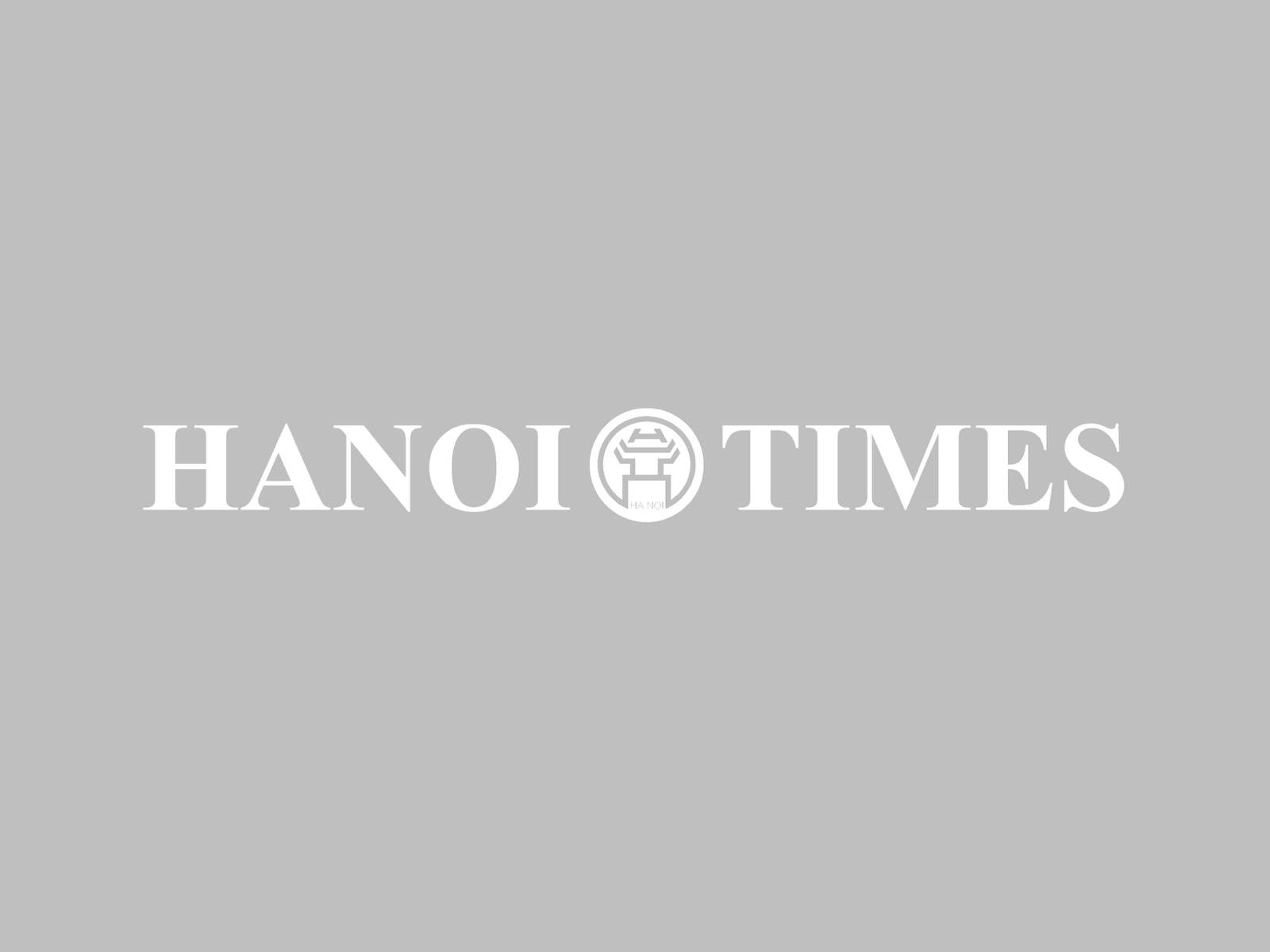
Hanoi's Mayor Nguyen Duc Chung. Source: MPI.
|
In particular, in 2016, 2017 and the first six months of 2018, US$12.46 billion was attracted, equivalent to 59% of the total FDI attracted in the 1989 - 2015 period. With the total FDI capital of around US$5.9 billion in the first six months of 2018, Hanoi has claimed the first place in FDI attraction nationwide.
Chung attributed the success to the fact that Hanoi has always been the pioneer in activities to build a government of service which supports businesses in every step. "The satisfaction of enterprises and citizens has been identified as the gauge in the operation of Hanoi's government system," he said.
According to Chung, FDI is an important source of capital for social investment, accounting for 10 - 15% on average of social investment and contributing to the city's high GRDP growth over the past years (averaging 7.11% annually).
At the same time, it is the FDI sector that has created stronger competition pressure in each sector, motivating domestic enterprises to innovate technology as well as enhance the economy's competitiveness.
The FDI sector has also created more stable jobs and skills training for workers; and there is a strong impact on the development and transfer of the structure of the three main sectors (industry - construction, trade - services and agriculture) promoting administrative reform and improving the business environment, building capacity of state management officials in the area of investment and enterprises.
Additionally, the FDI sector has contributed to the development of the metropolitan Hanoi to be a civilized and modern city with commercial and service facilities up to international standards, such as 72-storey Keangnam apartment, commercial, and service complex; 65-storey Lotte complex, international five star hotels like Sofitel Metropole, Hilton or Sheraton.
For Hanoi, the important thing is not only how much FDI is attracted, but also how to promote the effectiveness of this capital flow. Firstly, Hanoi will continue to establish a favorable investment and business environment so that enterprises and investors can successfully carry out their business and production plans, Chung affirmed.
Secondly, the capital will create a radical change in developing the e-government to save time and costs for businesses, focusing on administrative reform and reducing administrative procedures.
Moreover, Chung proposed some recommendations and solutions to the government for greater efficiency in FDI usage. First and foremost, the government, ministries and agencies should complete some mechanisms and policies to create a legal framework for the effective management and supervision of post-licensing project implementation.
In addition, it is recommended that the ministries have mechanism for the coordination and support in the provision of information and appraisal for foreign investors, enterprises, and partners to support localities in the appraisal of projects as well as strengthening and ensuring the nation's economic security and safety.
Once post-licensing management is strict, rigorous and effective, it can contribute to the improvement of quality and effectiveness of FDI, Chung concluded.


